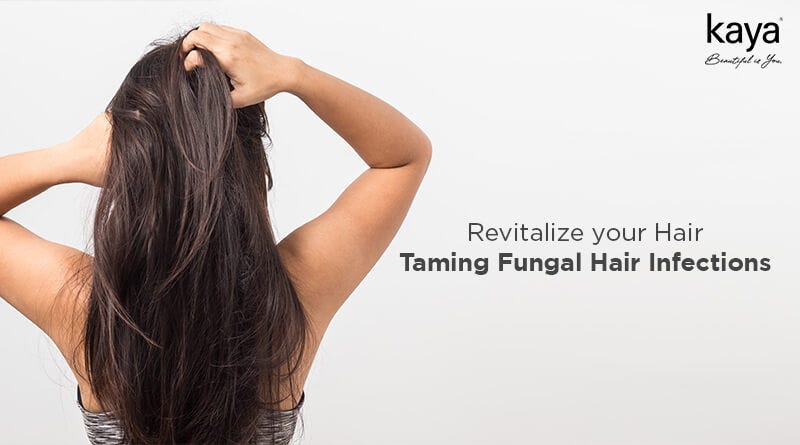
Are you sure you want to end this chat?
On ending previous conversation will be lost.
Table of Contents
Hair fungal infections, often caused by dermatophytes like ringworm, manifest as a scalp condition marked by persistent itching, redness, flakiness, and in severe cases, hair loss. These infections thrive in warm, moist environments and can affect hair follicles, leading to discomfort and visible symptoms.
The main culprits behind these infections are poor hygiene, sharing personal items such as combs, or coming into contact with contaminated surfaces. To address hair fungal infections, maintaining good hygiene practices is essential. Avoid sharing personal items, treat the affected area with antifungal shampoos or medications prescribed by a healthcare professional, and ensure a dry scalp and hair to prevent recurrence.
Timely diagnosis and proper treatment are crucial to alleviate symptoms, prevent further spread, and restore the scalp's health. If you suspect a hair fungal infection, consult a dermatologist for a precise diagnosis and tailored treatment plan, ensuring a healthy, itch-free scalp.
Fungal infections in the hair can arise for various reasons:
The symptoms of fungal infections in the hair can vary, but they typically include
Hair fungal infections, such as ringworm, are highly contagious and can spread through direct contact or sharing personal items like combs and hats. Prevention is vital, emphasising personal hygiene, avoiding shared items, and prompt treatment to halt transmission and maintain scalp health. To reduce the risk of acquiring or spreading fungal infections, consider the following measures:
Effective management and treatment of fungal infections in hair involves a combination of medical interventions and preventive measures.
Antifungal shampoos: Kaya antifungal shampoos containing ingredients like ketoconazole or selenium sulphide can help manage the infection. However, these shampoos serve more as a preventive measure than a complete treatment.
Oral antifungal medications: To effectively treat fungal infections in the hair, oral antifungal medications, such as griseofulvin or terbinafine, are typically prescribed. These medications are usually taken for several weeks, depending on the severity of the infection.
Topical treatments: In some cases, topical antifungal creams or ointments might be recommended along with oral medications.
Maintain scalp hygiene: Regularly washing your hair and keeping the scalp clean can aid in preventing and managing infections.
Seeking medical attention for a fungal infection in the hair is crucial for effective treatment and preventing further complications. It's advisable to consult a healthcare professional in the following situations:
No Improvement with treatments: If there's no noticeable improvement after using over-the-counter antifungal shampoos or creams for two weeks,
Severe symptoms: persistent redness, swelling, or pus-filled blisters on the scalp.
Intense itching: unmanageable itching that disrupts daily activities or sleep.
Hair loss: noticeable hair breakage or bald patches at the site of the infection.
Secondary symptoms: Presence of swollen lymph nodes, fever, or signs of secondary bacterial infection.
Recurring infections: If the fungal infection keeps returning even after treatment.
In conclusion, fungal infections in the hair and scalp are more than just a nuisance. Recognising their signs and symptoms is key to prompt treatment. Prioritising hair and scalp health helps restore comfort and confidence, ensuring overall well-being for those affected by these often underestimated dermatological concerns.
Kaya, with its expertise in skincare, is your perfect partner in your journey to achieving healthy hair and skin. Your health matters, so don't hesitate to explore all available options to ensure it's in the best condition. Get guidance from highly expert and experienced dermatologists and get relief from your hair woes.
Related Blog : Hairfall solution at home
